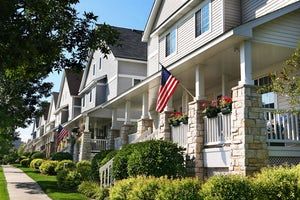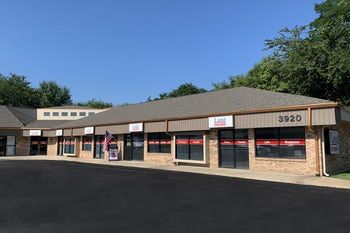Severe weather events are increasing in frequency across the country, especially in Midwestern states like Missouri. You or someone you know has probably experienced a major storm, flood, or fire recently.
Unfortunately, extreme weather may affect your home insurance rates. Here’s what you should know, so you can stay protected while saving money wherever possible.
Storms Are Becoming More Costly
As weather events have become more frequent, they’ve also become more costly for insurance carriers and, indirectly, for insurance customers. The severity of storms is one issue raising rates.
You don’t even need to be in a flood zone anymore to see serious damage done to your home. High winds, hail, and excessive rain can also cause flooding and other types of destruction. Perhaps this has already happened to you or a neighbor.
Over the last 20 years, the United States has witnessed twice the previous number of storms and natural events that resulted in damages of $1 billion or more.
Multiple Factors Impact Your Insurance Rates
The increased cost of skilled labor, construction materials, and replacement items, like high-end appliances, have also contributed to climbing home insurance rates. The rebuilding timeline may be extended as well, which often results in greater reimbursement fees for living elsewhere during construction (a.k.a. loss of use coverage). Eventually, increased expenses are reflected in clients’ premiums.
There are other factors that affect your insurance rates, too, although these are fortunately more under your control. Your credit history is one contributor, and your claim history is another. You are probably already aware that filing even one claim can result in your rates going up.
Save Homeowner Insurance for Big-Ticket Items
We encourage property owners to think before automatically filing a claim for home damage. In general, it’s best to save your insurance for large damages and pay for small repairs out of your own pocket.
- What types of items should you think about covering yourself?
- Repairs that cost less than or equal to your deductible
- Small jobs that would be less expensive than a rate hike
- Damages where no liability is involved
If you’re not sure what a repair would cost relative to your deductible, get an estimate first before contacting your insurance carrier, assuming it’s not an emergency situation.
Consider Adjusting Your Deductible
Your deductible is the amount you are responsible for out of pocket before your insurance pays out when you file a claim. The deductible and your insurance premium (the cost of your policy) have an inverse relationship with each other. When your deductible goes down, your premium goes up, and vice versa.
To save money on your policy, consider raising your deductible. Then, do what you can to minimize the likelihood of filing a claim. Weatherproof your home, prepare for storms in advance, and take care of things like encroaching tree branches before they become big-ticket items.
Do you need help setting your deductible or getting an insurance policy for your home? Our independent agents are happy to give you the personalized service that’s missing from those big insurance companies. Call Lang Insurance today at 636-229-7000, or reach out online for more information.










